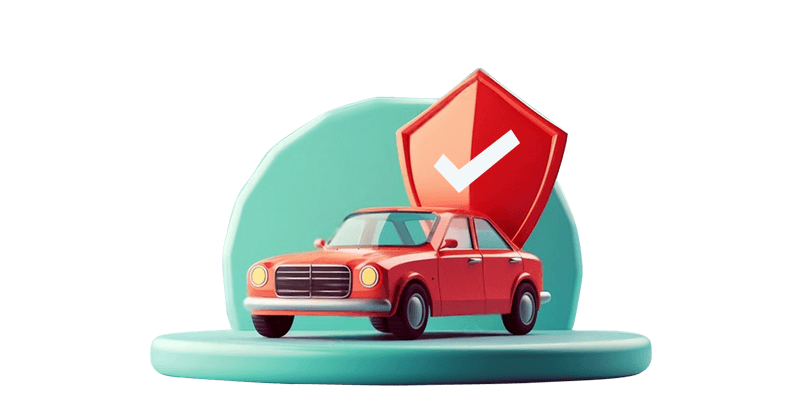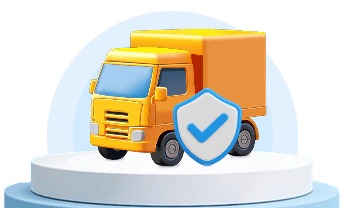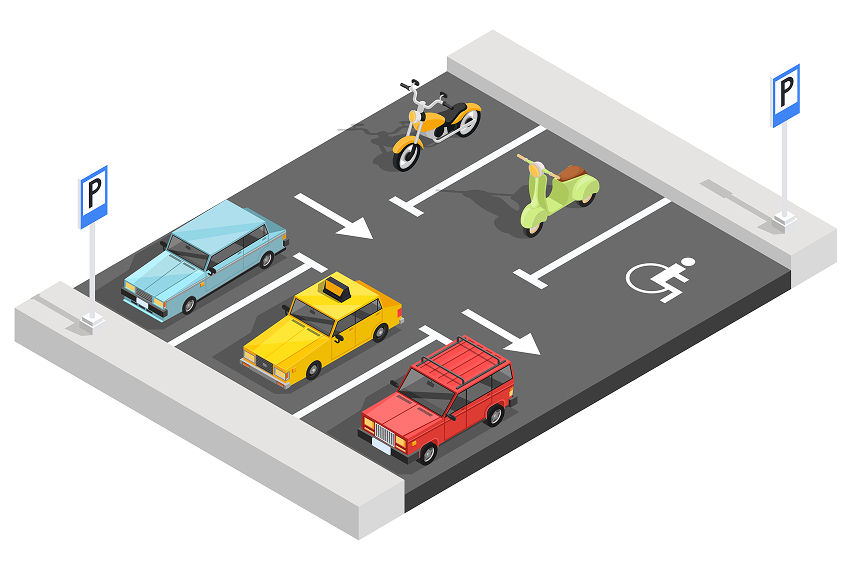
Car insurance can be a bit tricky, but having said that, with the proper knowledge and right attitude, you’ll be sorted. So, what all is there to know about car insurance that makes dealing with it easier?
- First, understanding the basics - what is car insurance, types of car insurance, cost, etc.
- Second, learning the process of getting car insurance.
- Third, finding the top car insurance providers.
- Fourth, assess your coverage needs & compare providers.
- Fifth, purchasing the policy.
- Sixth, timely renewal & ensuring the policy does not expire.
We have discussed all the above-mentioned essentials about car insurance in detail in our previous blogs. Today, we’ll be focusing on keeping the car insurance policy’s expiry and renewal.
So, let’s begin…
Car Insurance in the Philippines
Car insurance is not just a formality or a mere piece of paper that every car owner is required to have. Instead, it holds a lot of value for the car owner, as it protects them from significant financial burdens resulting from unexpected events like an accident, collision, fire, flood, or vandalism. Also, it takes care of third-party liability, thus giving you complete peace of mind while driving.
In the Philippines, a car owner is required to have a valid insurance policy, especially the CTPL insurance, which is also required for vehicle registration at the LTO. The rest, like the comprehensive insurance, is optional but is considered a wise choice for its wide coverage.
But have you ever wondered about the expiry of the car insurance policy? Nothing lasts forever; there is a validity date attached to everything. The same is the case with car insurance; if it's not renewed on time, it'll be of no use, leaving you to face the consequences.
Also Read: What is covered (and not covered) in a car insurance policy in the Philippines
So, what to do? The answer you’ll get after reading this article thoroughly. So, continue…
Car insurance expiry - The basic understanding
 AI Generated Image
AI Generated ImageWhat is car insurance expiry?
A car insurance expiration means that the policy is no longer active, and its coverage period has ended. Now, it is of no use and will therefore offer no protection to the policyholder.
When can a car insurance policy expire?
A car insurance policy can expire due to several reasons, some of the most common ones being -
- End policies' shelf-life, which is usually 12 months
- Forgetting to renew the policy before the due date
- Lack of funds to renew the policy
- Miscommunication with the insurance provider/agent
- Intentionally skipping the due date
Consequences of an expired insurance policy
A car owner faces a lot of consequences when their policy expires, a few immediate ones being -
Issues with vehicle registration renewal: An expired insurance policy means no CTPL, which will lead to rejection of your vehicle registration application at the LTO.
No financial protection: With no insurance, you’ll have no protection shield on the road. Meaning you’ll have to bear all the expenses related to vehicle damage or third-party liability.
Fines & penalties: If caught driving an uninsured car, you’ll be charged with penalties and fines, and your vehicle can be impounded.
Legal issues: Driving uninsured is risky; if involved in an accident, it might result in a potential lawsuit, along with financial burden.
Furthermore, if your policy expires or lapses because you didn’t renew it before the expiry date, you’ll be required to get a new policy. However, you’ll have to pay for insurance again and will be able to enjoy the coverage again, but there’s a catch. With a history of a lapsed policy, you’ll be facing the following consequences -
- Insurance providers will charge a higher premium, seeing the gap in your coverage.
- Claims will get denied if the accident happens during the lapse.
- Switching to a new insurer might get difficult, as your application will be scrutinised strictly.
What to do after insurance policy expires - Step-by-step guide
 AI Generated Image
AI Generated ImageStep 1: Get your policy
Locate your insurance policy and check the exact date of expiry.
Step 2: Contact your insurance provider
Time to call your insurance agent or customer care of the provider and discuss your situation.
Step 3: Prepare necessary documents
As suggested by the insurer, collect all necessary documents for renewal, like the vehicle’s OR/CR, a copy of the expired policy, and a valid ID. Get the paperwork started and proceed as guided by the agent.
Step 4: Pay for renewal
Many insurance providers these days offer online payment for renewal, so take advantage and save your time and money.
Step 5: Get your renewed policy
Congratulations, your policy has been renewed and you have the optimum covergea.
While these steps indicate going with the same insurance provider, what if you want to switch to a different company? In that case, you need to find your options, which include comparing providers based on quotes, customer reviews, coverage, and claim process, and ultimately going with one with the best deal.
Car insurance policy renewal tips
Here are a few tips to renew your policy on time, before it lapses -
Tip 1: Set automatic reminders
It is best to set reminders on your smartphone to avoid any defaults. It is recommended to place a 30-day prior alert before the expiration date.
Tip 2: Opt for automatic renewal
Automatic renewal of the policy is a good option if your insurer provides this facility. It gives the insurer prior permission.
Tip 3: Update your coverage
At the time of renewal, make sure your coverage meets your requirements; if not, update it.
Tip 4: Watch out for promos & discounts
Make sure to take advantage of renewal discounts or any ongoing promos.
Tip 5: Budget your annual premium
To make the annual premium payment smooth, you can set aside a small amount every month to cover the cost.
Also Read: Annual vs.monthly insurance premiums: Which one saves more?
Bottom line
If you are a policyholder, you must ensure that your policy remains active and updated. Doing so will guarantee optimum financial coverage and protection against damages to your car due to accident, collision, fire, flood, vandalism, etc. To make the benefits flow, you need to ensure timely payment of the premium and timely policy renewal.
But what if your policy expires? This will lead to some serious consequences, including fines, denied registration, and massive out-of-pocket expenses. Note that all these risks far outweigh the cost of policy renewal, which can be done via a bit of planning, setting reminders, and considering alternate renewal options.
FAQs
Q1. Is there a way to find my insurance policy expiry date?
Ans. Yes, you can find your policy's expiry date either by reviewing the policy documents or by contacting your insurance agent.
Q2. Do insurance providers offer a grace period for policy renewal?
Ans. Yes, most insurance providers in the Philippines offer a grace period of 7 to 30 days to policyholders who missed the renewal date.
Q3 My insurance policy expired. Can it be renewed?
Ans. Yes, however, you might have to face higher premiums or even coverage gaps.
Q4. Is it possible to switch insurance providers at the time of policy renewal?
Ans. Yes, a policyholder is free to switch insurance providers anytime, even during renewal. However, make sure to compare quotes from multiple providers to get the best deal possible.
Q5. Why is it important to read the insurance policy fine print after renewal?
Ans. After receiving the policy documents, it is essential to review all the details and verify that everything is accurate. If not, contact your agent/broker immediately.
Q6. What details are required for insurance policy renewal?
Ans. To initiate the policy renewal process, you’ll need to share the following details: vehicle’s model, make, & year, your age, and claim history. Also, if there’s any change in your details, such as your contact number and address or vehicle usage, please notify the insurer.
Q7. Do I need to reveal recent vehicle modifications at the time of policy renewal?
Ans. Absolutely yes, any change or modification in the vehicle’s appearance or parts needs to be highlighted to the insurer.
Q8. What are the penalties for driving without insurance in the Philippines?
Ans. Driving with expired or no insurance leads to the following consequences: fines, penalties, and possible vehicle impoundment.
Q9. Is there a way to avoid missing the policy renewal date?
Ans. Yes, you can avoid missing the policy renewal date by setting reminders on your smartphone. Further, you can opt for auto policy renewal.
Q10. Is it possible to renew the policy online?
Ans. Yes, many insurance providers in the Philippines offer clients the facility to renew the policy online, from the comfort of their home/office.
Q11. What are the document requirements for policy renewal?
Ans. In addition to sharing essential details like personal information and changes in vehicle usage or modification, you are required to submit documents like the vehicle OR/CR, a valid ID, and a copy of the expired policy.
Q12. What happens if I get involved in an accident without insurance?
Ans. Getting involved in an accident without insurance can lead to a heavy financial burden, with all the repair and medical expenses falling on the driver/car owner.
Q13. Is insurance renewal a good time to reconsider the deductible?
Ans. Yes, car insurance renewal is the perfect time to revise your deductible, which is the amount you pay from your pocket when making a claim.
Also Read: Top 5 mistakes people make when buying car insurance in the Philippines










